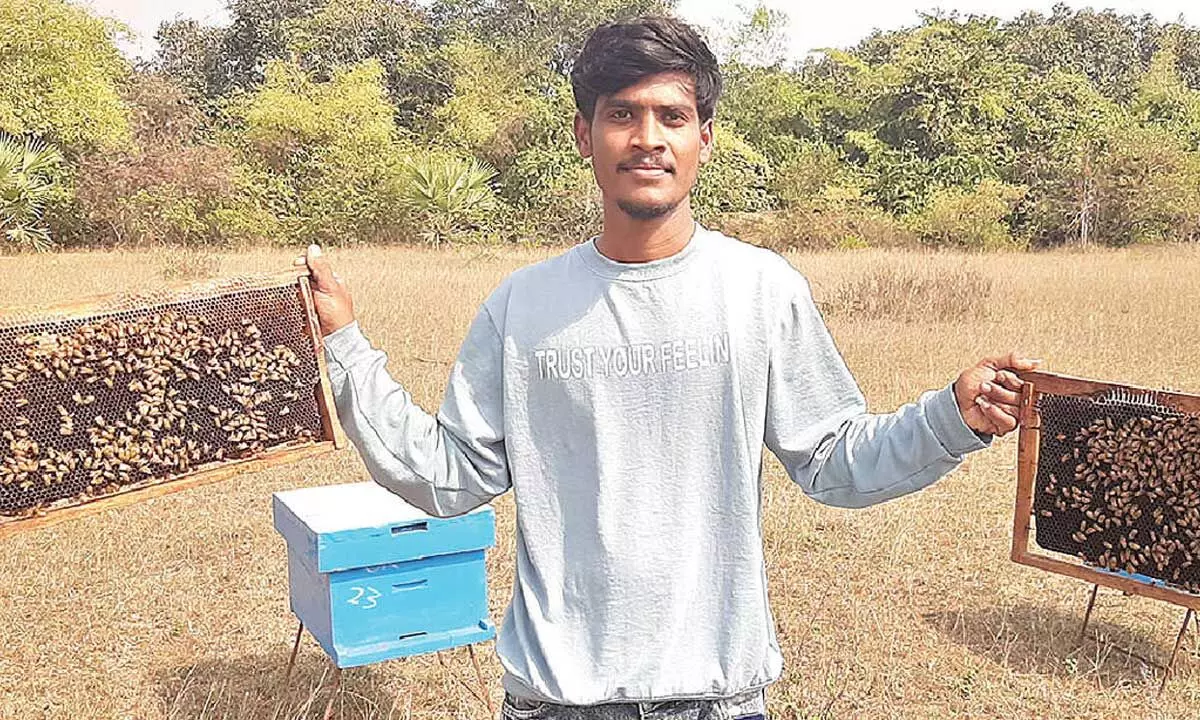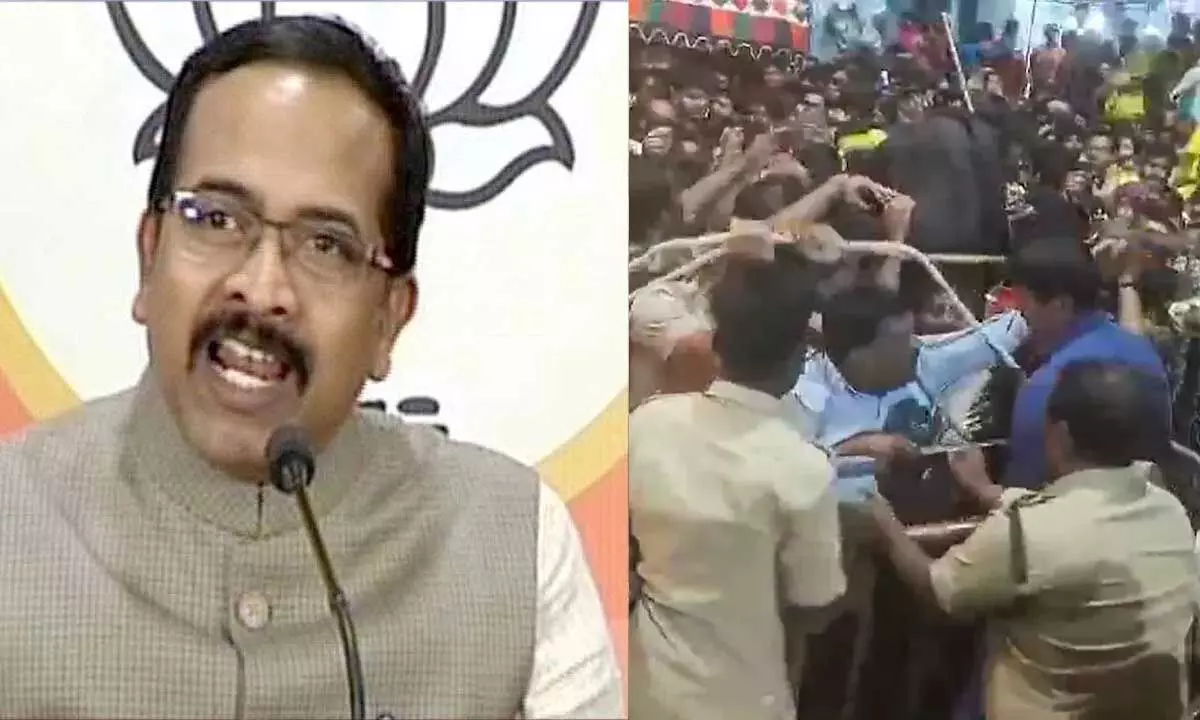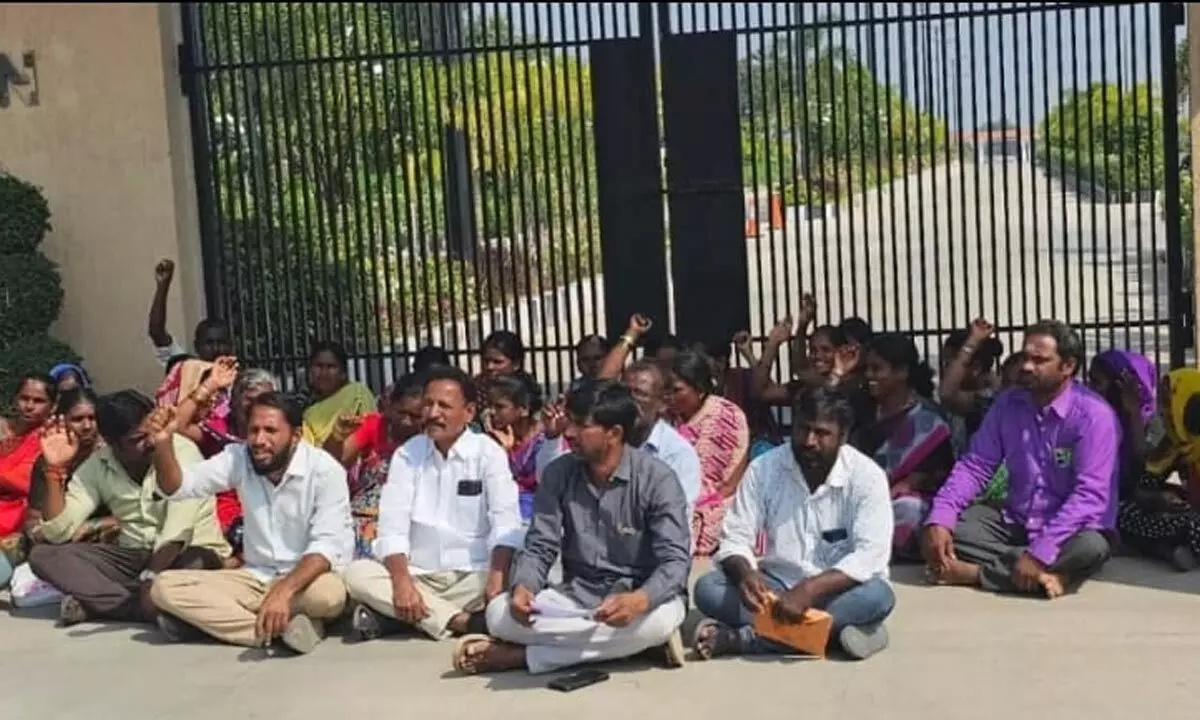Government Aims for 1,000 MW Solar Power Production Through Self-Help Groups
The Deputy Chief Minister, Bhatti Vikramarka Mallu, announced that the government is moving forward with plans to empower women through policy-driven initiatives. In a video conference with district collectors on Wednesday, he reviewed progress on establishing solar power plants through Self-Help Groups (SHGs). The goal is to produce 1,000 MW of electricity.
The Deputy CM shared that a collaboration has already been finalized between the Energy and Rural Development Departments to make this project successful. The meeting was attended by key officials, including Ministers Seethakka and Konda Surekha, Energy Department Principal Secretary Sandeep Kumar Sultania, Rural Development Principal Secretary Lokesh, SERP CEO Divya Devarajan, and Transco CMD Krishna Bhaskar.
Empowering Women Through Loans
During the meeting, Bhatti Vikramarka reiterated the government’s commitment to empowering women. He mentioned the aim of turning one crore women into millionaires within five years by providing interest-free loans. He urged officials to help SHGs use these loans effectively to establish sustainable businesses.
Land Identification for Solar Power Plants
District collectors were instructed to identify suitable land, including government land, to set up solar power plants. Each megawatt of solar power requires four acres, meaning 4,000 acres will be needed statewide. The Deputy CM suggested using land from the Endowments and Irrigation Departments and tribal areas under the Recognition of Forest Rights (RoFR) Act, while ensuring the process does not inconvenience tribal communities.
To support SHGs, financial aid through banks will be facilitated. The Energy Department, through REDCO, has already invited tenders for the installation of solar power plants, which will be finalized soon. Collectors were directed to speed up the land acquisition and financial support processes.
Opportunities for Tribal and Urban Areas
The Deputy CM highlighted the potential benefits of setting up solar power plants on tribal lands. These plants can support agricultural activities, such as drip irrigation, and improve the livelihoods of tribal communities. He also suggested utilizing high-rise buildings and unused hilltops in Hyderabad and Rangareddy districts to conserve government land.
Under the PM-KUSUM scheme, farmers can produce up to 2 MW of solar power. Collectors were asked to raise awareness about this initiative and encourage farmers to apply through the Telangana REDCO portal. This step aims to provide eco-friendly and affordable power solutions.
Promoting Women Entrepreneurship
To further encourage women entrepreneurship, Bhatti Vikramarka proposed allocating 4-5 acres of land in each constituency to establish mini-industrial areas. These areas would offer Self-Help Groups new business opportunities and strengthen their financial independence.
Support for Tribal Communities
The Deputy CM also focused on integrating various government schemes to support tribal communities. He emphasized promoting profitable farming on tribal lands, such as avocado cultivation. So far, the government has distributed 6.67 lakh acres of land to tribal families.
Minister Seethakka suggested prioritizing Godavari basin lands from Achampet to Adilabad, which could bring significant benefits to tribals who have limited incomes but access to large tracts of land.
Key Participants in the Meeting
The video conference was attended by district officials, including District Collector B.M. Santosh, Additional Collector Narsing Rao, Energy Department SE Tirupathi Rao, and Additional PD Narasimhulu.
This initiative highlights the government’s focus on renewable energy, women’s empowerment, and tribal welfare, aiming to create long-lasting social and economic changes across the state.














